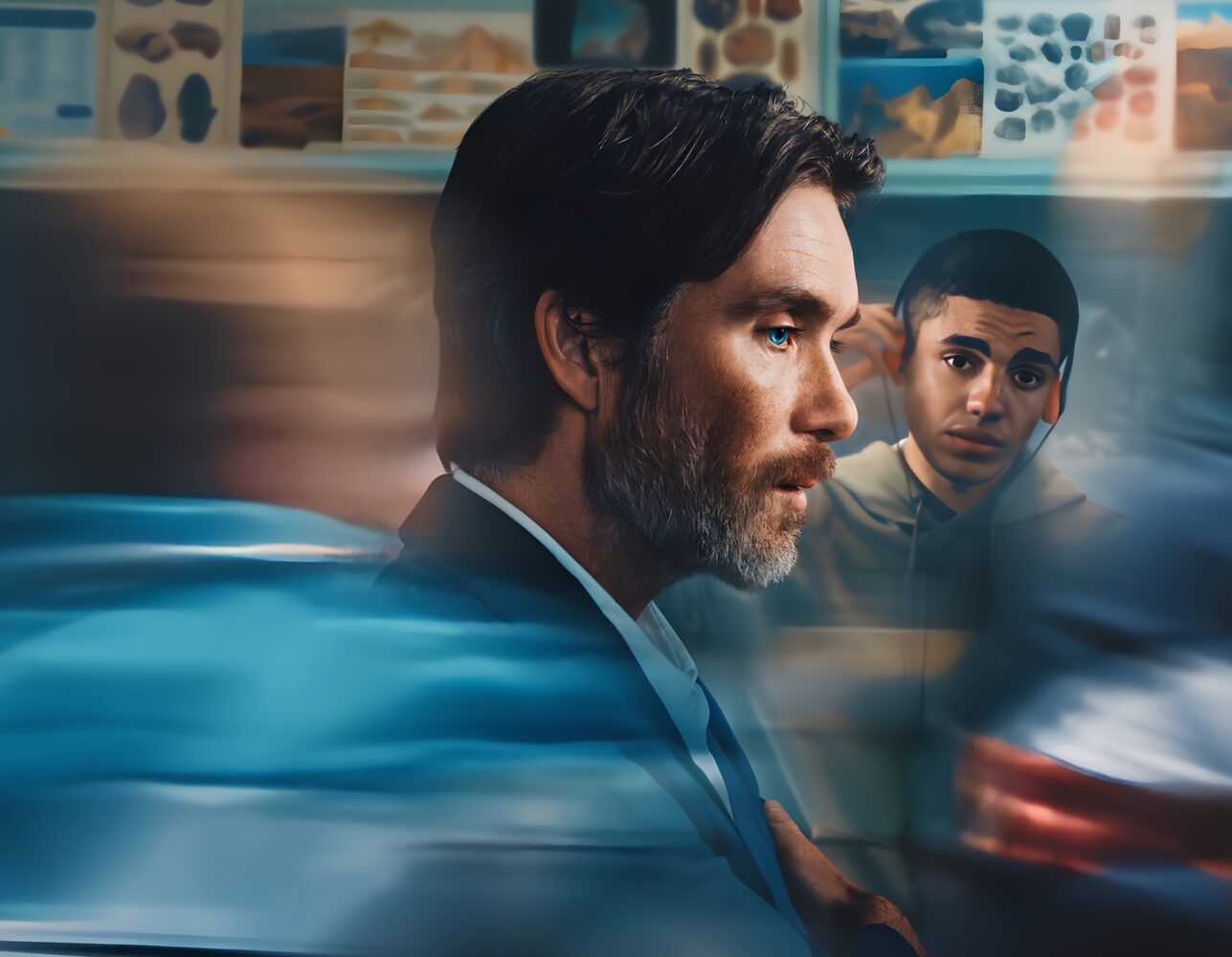TL;DR: Cillian Murphy goes full feral in Steve, a brutal reform school drama that mixes death-metal chaos with black humor and gut-wrenching humanity. It’s messy, painful, and unforgettable.
Steve
Cillian Murphy has a face that has carried the apocalypse before. He’s played men hollowed out by war, by shame, by some unspeakable Irish sorrow—and somehow, he always finds a way to take that face and twist it just slightly so it feels like you’re looking at a completely different man. In Steve, his latest collaboration with director Tim Mielants, he doesn’t just twist the face; he tears the entire soul open. This is not a quiet Cillian Murphy performance. This is not Peaky Blinders-style brooding. This is not even the hollow restraint of Oppenheimer. This is a man drenched in feral panic and pitch-black comedy, leading a reform school full of teenage boys who are basically one fistfight away from setting the building on fire. And it is absolutely riveting.
The film is adapted from Max Porter’s novella Shy, but with one crucial difference: it no longer belongs to Shy. The book was about the kid. The film, pointedly retitled Steve, is about the adult in the room—or rather, the adult who isn’t. Murphy’s Steve is the headteacher of a residential reform school in the mid-90s, the kind of place society quietly uses as a dumping ground for its most combustible young men. The school is chaotic, violent, weirdly funny in its own anarchic way—and Steve is trying to hold it together while hiding the fact that he’s drowning in alcohol and pills.
If you’ve ever had a teacher who seemed barely more stable than the kids, you know the vibe. Steve spends half his energy pretending to be the cool mentor, the other half screaming into the void, and somewhere in between, he manages to let the mask slip just enough that you realize: he’s one of them. Maybe the worst of them.
What makes Steve so gut-punching is the way Mielants stages its bedlam with death-metal ferocity. The fights between the boys feel improvised, like unscripted bursts of chaos where insults come faster than fists, and yet the film never loses control. The staff orbiting Steve—Tracey Ullman as his sharp deputy, Emily Watson as the school’s exhausted therapist, and Little Simz in her film debut as the new teacher—function like both colleagues and caretakers. You can feel their affection for Steve, but you can also see their fear. They treat him like he’s just another one of the boys: unpredictable, fragile, in need of constant watching.
Then comes the day when the walls fall in. A local MP shows up with a news crew, eager to turn the school into a feel-good puff piece. At the exact same time, Steve learns the school is being sold off, bulldozed by bureaucracy. Meanwhile, Shy—the quietest of the boys, played with heartbreaking precision by Jay Lycurgo—receives his own devastating news: his family is done with him. Permanently. In that collision of public farce and private ruin, the film detonates.
Murphy’s performance here is one of those rare ones where you don’t see the actor anymore. His opening on-camera interview, filmed by the news crew, is so raw and broken it feels like you’ve stumbled into a true-crime documentary. His outbursts—violent, terrifying, absurd—don’t play like melodrama. They play like the natural consequence of a man who’s been holding back tidal waves for decades and finally lets one rip. There’s a moment where he threatens to strangle the trust chair, a grotesque parody of the very behavior he’s supposed to be reforming. It’s horrifying, but also morbidly funny—like watching a teacher break the rules of his own classroom in front of his students.
That’s what the film does so well: it refuses to let you sit in one emotional lane. One moment you’re laughing at the sheer audacity of the boys, who spit out their lines like they’re in a permanent rap battle (minus the rhymes, plus the bruises). The next moment, you’re gutted by the sheer rejection and loneliness simmering underneath. And just when you think the film might collapse under its own misery, it pulls back—ever so slightly—for a voiceover from Steve, reflecting on the boys with something like love. Not redemption, exactly. But a breath. A small flicker of humanity in the rubble.
It would be easy to say that this ending softens the blow, and maybe it does. But after two hours of chaos, maybe we need the amp turned down from eleven. Maybe hope, however fragile, is the only way to stagger out of a film like this without crawling under your blanket and refusing to come out.
Steve is not an easy film. It’s jagged, it’s brutal, it’s occasionally ridiculous in its absurd black humor—but it’s alive. And Cillian Murphy is incandescent at its center, proving once again that no one plays broken men like him. Jay Lycurgo is a revelation as Shy, holding his own in the storm. And the supporting cast—Watson, Ullman, Simz—give the film its necessary counterbalance, grounding Steve in just enough reality to keep the whole thing from spiraling into parody.
When the credits roll, you don’t feel satisfied. You feel scorched. And maybe that’s the point.
Final Verdict:
Steve is a ferocious, darkly funny, and deeply moving drama about the collapse of authority and the fragile hope of survival. Powered by a once-in-a-decade performance from Cillian Murphy and a breakout turn from Jay Lycurgo, it’s the kind of film that leaves you rattled, wrung out, but strangely grateful to have witnessed it. Not everyone will survive its chaos. But if you do, you won’t forget it.







